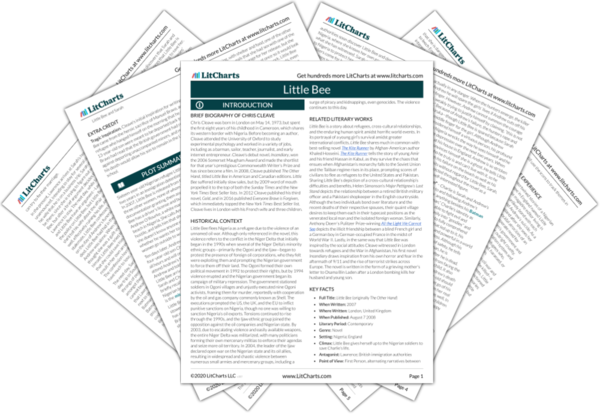Little Bee wakes on
Sarah’s sofa, though it takes her a moment to remember where she is. As she looks around the lavish house, she thinks it would be impossible to describe to “the girls back home.” Little Bee decides that this story is not for such girls, but for “sophisticated people.” Sarah offers her some tea. The flavor reminds Little Bee of the cargo ship she stowed away on. When she revealed herself to the captain, he locked her away from the crew and gave her the book
Great Expectations to read for the three-week voyage. When she arrived in the detention center an officer gave her a cup of tea as well, but the taste only made her want to get back in the ship and sail home.
